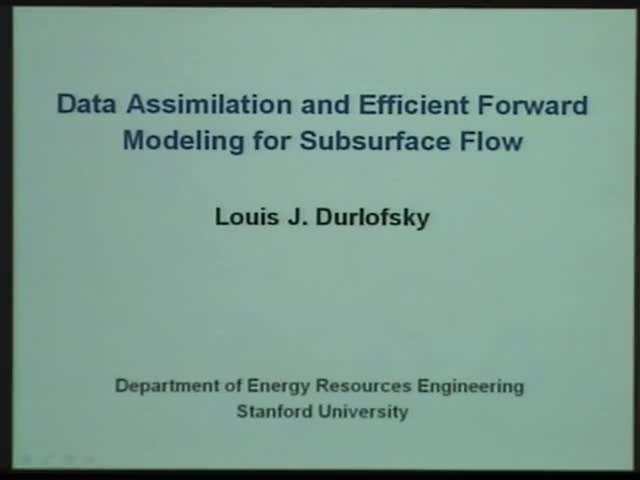Data Assimilation and Efficient Forward Modeling for Subsurface Flow
Presenter
June 8, 2011
Keywords:
- Subsurface Flow
MSC:
- 76N25
Abstract
In this talk I will present computational procedures applicable for the real-time model-based management and optimization of subsurface flow operations such as oil production and geological carbon storage. Specifically, the use of kernel principal component analysis (KPCA) for representing geostatistical models in data assimilation procedures and the use of reduced-order models for efficient flow simulations will be described. KPCA-based representations will be shown to better capture multipoint spatial statistics, which gives them an advantage over standard Karhunen-Loeve procedures for representing complex geological systems. The use of KPCA within a gradient-based data assimilation (history matching) procedure will be illustrated. Next, a reduced-order modeling technique applicable for forward simulations will be described. This approach, called trajectory piecewise linearization (TPWL), entails linearization around previously simulated states and projection into a low-dimensional subspace using proper orthogonal decomposition. The method requires training runs that are performed using a full-order model, though subsequent simulations are very fast. The performance of the TPWL approach and its use in optimization will be demonstrated for realistic field problems.
